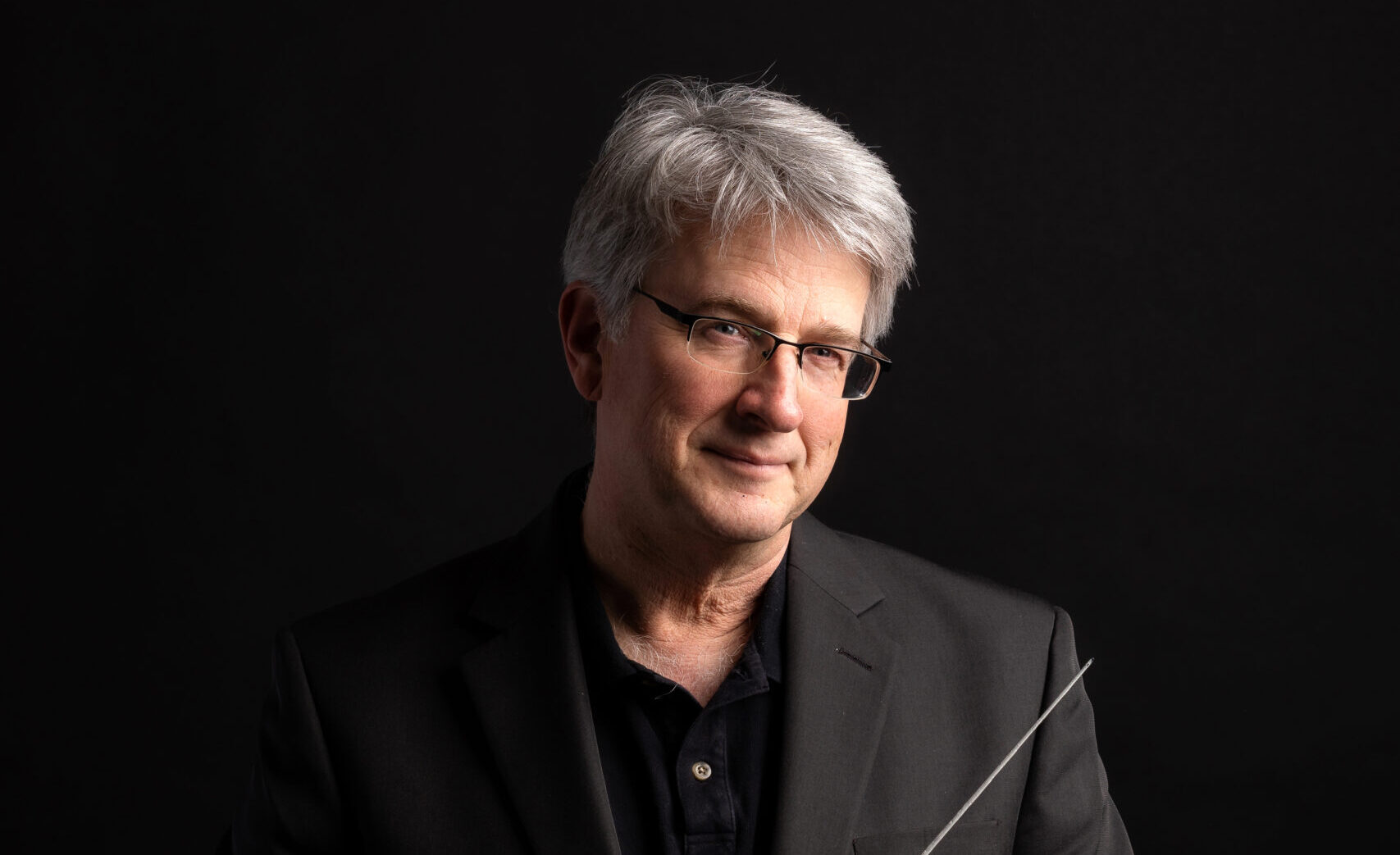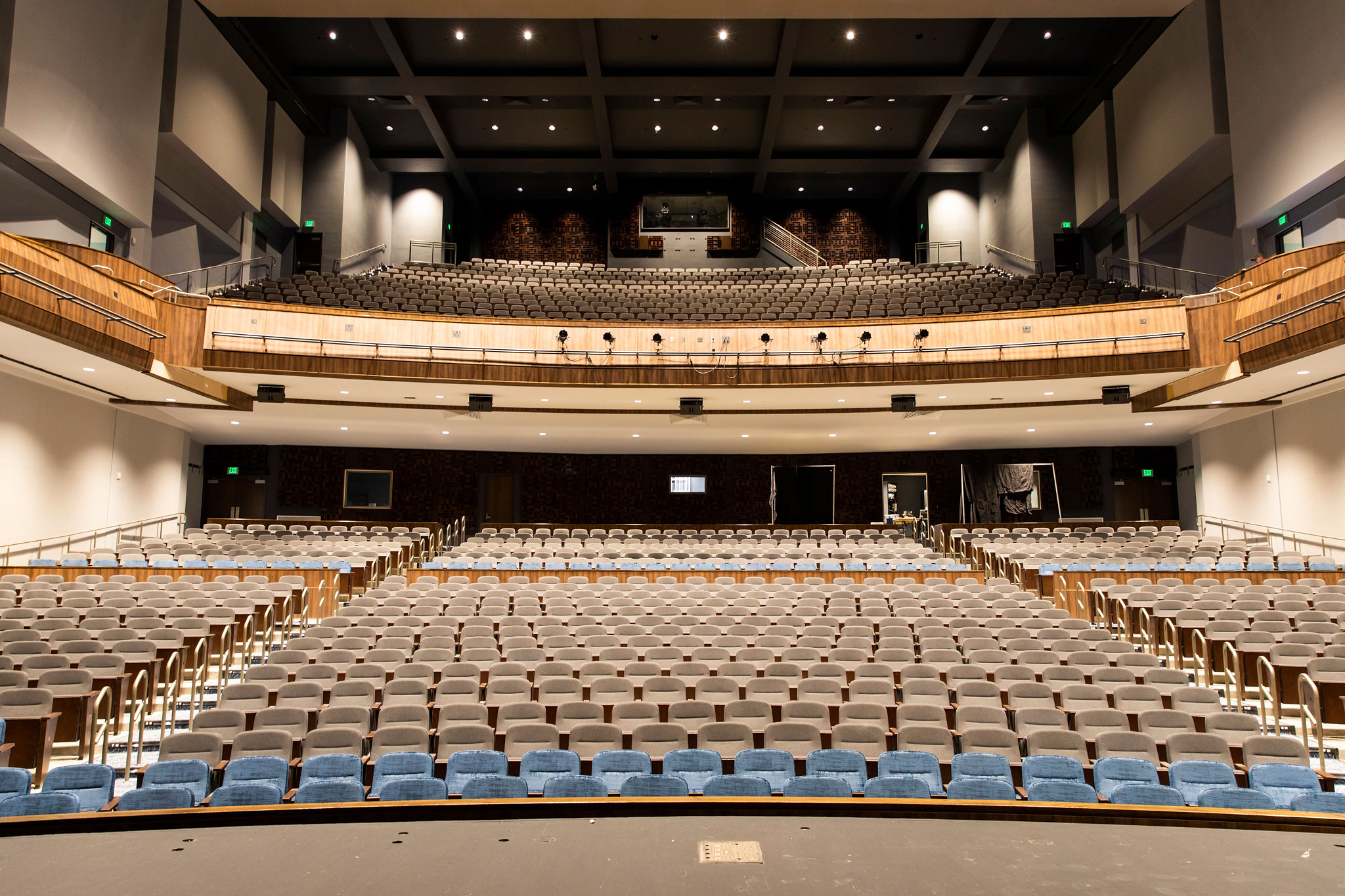
Maestro Timothy Muffitt returns to play Beethoven’s Symphony No. 9 in renovated River Center Theatre
Think of it: Beethoven’s big, booming, uplifting “Ode to Joy” sung by a chorus of 120, flanked by 80 hard-working musicians led one last time by Baton Rouge’s poster boy of classical music. And it’s taking place—finally—in the newly spruced concert hall that went dark for renovations way back in 2018.
An ode to joy, indeed.
“It’s a big night for us,” says Eric Marshall, executive director of the Baton Rouge Symphony Orchestra. “It’s going to be amazing to return to the Raising Cane’s River Center Theatre and for Timothy Muffitt to be back.”
|
|
Held on May 20, the final concert of the Baton Rouge Symphony Orchestra’s 75th season features Beethoven’s Symphony No. 9 conducted by maestro Timothy Muffitt, the orchestra’s longtime music director. Muffitt stepped down as conductor in 2019 and has served as the symphony’s music director laureate since then. He will return to lead one last concert as the symphony closes out its season. Two previously planned farewell concerts for Muffitt were interrupted by the coronavirus pandemic.

Musicians are looking forward to a last chance to play with Muffitt, who became BRSO’s music director in 1999.
“The mark that Tim has left on our organization is incredible,” Marshall says. “He’s a complete pro. He’s known for being easy to work with, and musicians love his collaborative style. I’ve never met anybody who doesn’t adore him.”
A series of guest conductors have led the symphony orchestra since Muffitt’s departure. Marshall anticipates a new conductor will be named sometime this summer.
While it’s Muffitt’s last concert in Baton Rouge, the silver lining is that it’s also his first chance to play in the freshly renovated theater, the symphony’s home stage. The concert hall underwent an $18 million, three-year glow-up, finally reopening in March after multiple delays. After performing there this spring, the symphony has been able to revel in the new amenities.
“The visitor experience is really incredible,” Marshall says. “All the things that make your evening enjoyable are there.”
The biggest changes to the space, built in the ’70s, include new seating and major improvements to both restrooms and concessions. Gone are long rows of continuous continental seating that have made getting up an inconvenience. In its place is American-style seating, which features seats divided by two long side aisles.
In some areas of the theater, like the front row of the balcony, premium seats with cup holders have been added. The total number of seats is about 1,800, slightly less than the previous number, but they’re all designed to be much more comfortable and convenient, Marshall says.
“And there’s a great view no matter where you are,” he adds.
Concessions have been expanded to include 12 different stations serving alcoholic beverages, sodas and food. All transactions are cashless. Additional new restrooms make it easier for patrons to return to their seats without delays caused by long lines.
And who would want to be late for Beethoven’s rousing ninth, the famed conductor’s last symphony?
Lasting just over an hour, it will be the only work played that night, Marshall says. Its final movement, the “Ode to Joy,” is one of the most familiar pieces of classical music around (cue the 1988 movie Die Hard). Beethoven wrote the final movement to German playwright Friedrich Schiller’s poem, “Ode to Joy,” whose themes include the unity of mankind. The movement was named the national anthem of the European Union in 1985.
“It’s one of the greatest works out there,” Marshall says. “It’s a fitting way to end the season.”
The last of the theater project’s milestones, a renovated front plaza, is underway now, but Marshall anticipates it will be finished in time for the final concert. A party for Muffitt will be held there after the show. brso.org
This article was originally published in the May 2022 issue of 225 magazine.
|
|
|
